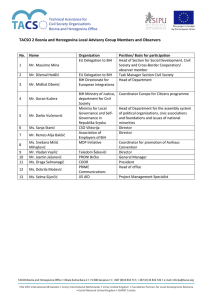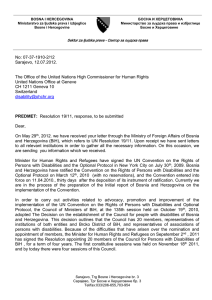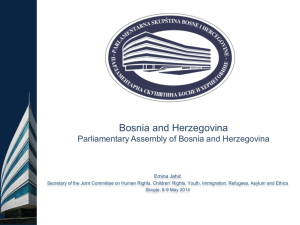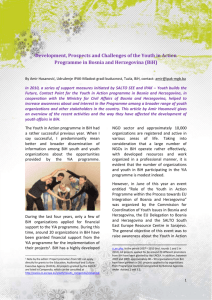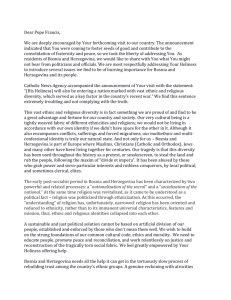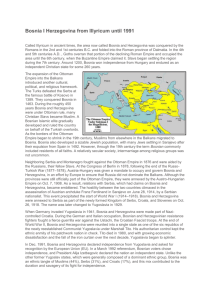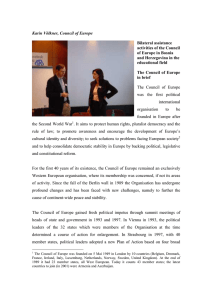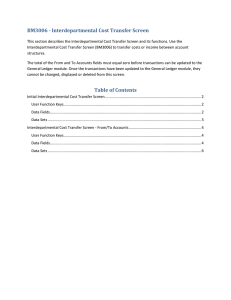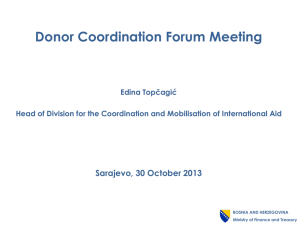Unscrupulous-derogation-of-the-Legal-Framework-for-Prevention
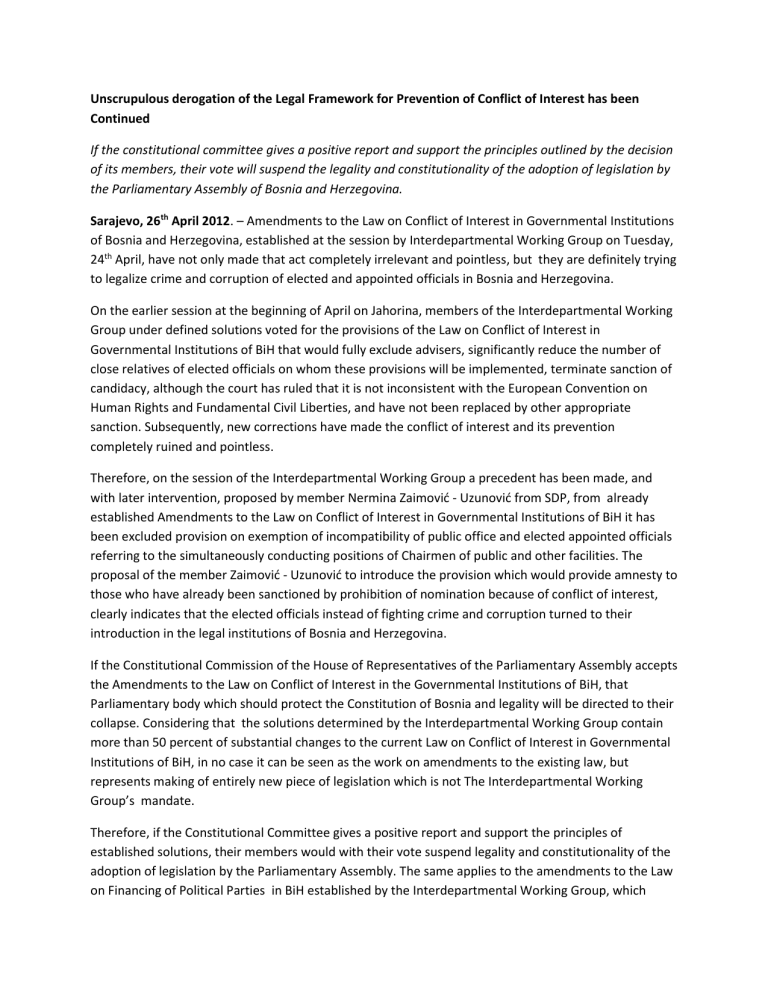
Unscrupulous derogation of the Legal Framework for Prevention of Conflict of Interest has been
Continued
If the constitutional committee gives a positive report and support the principles outlined by the decision of its members, their vote will suspend the legality and constitutionality of the adoption of legislation by the Parliamentary Assembly of Bosnia and Herzegovina.
Sarajevo, 26 th April 2012. – Amendments to the Law on Conflict of Interest in Governmental Institutions of Bosnia and Herzegovina, established at the session by Interdepartmental Working Group on Tuesday,
24 th April, have not only made that act completely irrelevant and pointless, but they are definitely trying to legalize crime and corruption of elected and appointed officials in Bosnia and Herzegovina.
On the earlier session at the beginning of April on Jahorina, members of the Interdepartmental Working
Group under defined solutions voted for the provisions of the Law on Conflict of Interest in
Governmental Institutions of BiH that would fully exclude advisers, significantly reduce the number of close relatives of elected officials on whom these provisions will be implemented, terminate sanction of candidacy, although the court has ruled that it is not inconsistent with the European Convention on
Human Rights and Fundamental Civil Liberties, and have not been replaced by other appropriate sanction. Subsequently, new corrections have made the conflict of interest and its prevention completely ruined and pointless.
Therefore, on the session of the Interdepartmental Working Group a precedent has been made, and with later intervention, proposed by member Nermina Zaimović - Uzunović from SDP, from already established Amendments to the Law on Conflict of Interest in Governmental Institutions of BiH it has been excluded provision on exemption of incompatibility of public office and elected appointed officials referring to the simultaneously conducting positions of Chairmen of public and other facilities. The proposal of the member Zaimović - Uzunović to introduce the provision which would provide amnesty to those who have already been sanctioned by prohibition of nomination because of conflict of interest, clearly indicates that the elected officials instead of fighting crime and corruption turned to their introduction in the legal institutions of Bosnia and Herzegovina.
If the Constitutional Commission of the House of Representatives of the Parliamentary Assembly accepts the Amendments to the Law on Conflict of Interest in the Governmental Institutions of BiH, that
Parliamentary body which should protect the Constitution of Bosnia and legality will be directed to their collapse. Considering that the solutions determined by the Interdepartmental Working Group contain more than 50 percent of substantial changes to the current Law on Conflict of Interest in Governmental
Institutions of BiH, in no case it can be seen as the work on amendments to the existing law, but represents making of entirely new piece of legislation which is not The Interdepartmental Working
Group’s mandate.
Therefore, if the Constitutional Committee gives a positive report and support the principles of established solutions, their members would with their vote suspend legality and constitutionality of the adoption of legislation by the Parliamentary Assembly. The same applies to the amendments to the Law on Financing of Political Parties in BiH established by the Interdepartmental Working Group, which
contain more than 75 percent of the valid modification of the legal act. These legal solutions established by the Interdepartmental Working Group are fully in the service of the protection of elected and appointed officials from accountability and the fight to legalize such a situation.
